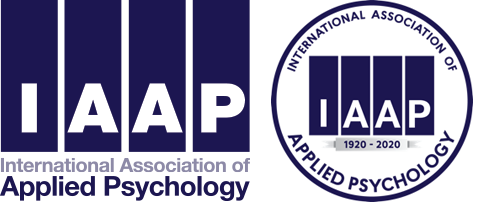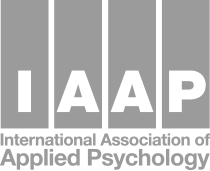Ukraine
IAAP Statement about human rights and peace and security
March 2022
The International Association of Applied Psychology (IAAP) stands for universal human rights, and peace and security. We are deeply concerned about the military and humanitarian offenses the Russian Federation is carrying out in Ukraine, resulting in ongoing devastating loss of life and attack on innocent civilians. We strongly condemn this unjustified aggression and stand in solidarity with the people of Ukraine, neighboring nations, and countries of the world. We support the coincident sanctions and other actions being taken by the United Nations and other international and national bodies to preserve peace and security and to protect human rights.
Russia’s aggression against Ukraine violates Ukraine’s sovereignty, international law, and the United Nations Charter, which prohibits the use of force against the territorial integrity of another state(i). Russia’s actions are further in violation of The Universal Declaration of Human Rights (1948) which proclaims that freedom, justice, and peace in the world rest on honoring the inherent dignity and fundamental rights of all members of the human family including but not limited to “the right to life, liberty and the security of person” (ii).
IAAP recognizes that the people of Ukraine are bravely fighting and dying for freedom and for their country, in an extraordinary example of courage and determination for all of us.
As an international association of psychologists, IAAP recognizes the deleterious impact of violence and oppression on the mental health and wellbeing of persons, cultures, and societies. The harmful consequences of the aggression against Ukraine extend beyond the tragic loss of life that has already occurred. As we psychologists know, armed confrontations leave multiple and lasting consequences on psychological and social conditions, especially for women, children, the aging, and all marginalized persons. The current war waged by Russia goes beyond borders and further compromises our collective future.
Considering this dire situation, IAAP:
- urges world leaders to unite in condemnation of the war by Russia against Ukraine, and to unite in actions to deter Russia’s further offenses.
- expresses thanks to the Member States of the United Nations, under the leadership of Secretary-General António Guterres and the President of the General Assembly H.E. Abdulla Shahid, for all their actions furthering humanitarian efforts, and in support of the UN Charter (iii), including co-sponsoring a resolution standing with Ukraine.
- appreciates the efforts of United Nations entities, including the World Health Organization, UNWomen, and UNICEF, among others, and all international and national organizations in support of the people of Ukraine.
- calls upon all Member States and UN bodies to continue their multilateral efforts in humanitarianism and stopping aggression against Ukraine.
- further encourages cooperative efforts by all civil society actors in the above.
The responsibility for concrete, effective, swift action does not solely rest with governments, any one agency, or other organization. Psychologists and mental health professionals around the world must also add their voices and take action. As an original co-signer of the Universal Declaration of Ethical Principles for Psychologists IAAP stands for Respect for the Dignity of Persons and Peoples and the Competent Caring for the Well-Being of Persons and Peoples (iii).
In this regard, IAAP pledges its support and partnership in all the above-mentioned endeavors within our purview. While we recognize that the people of Russia are not responsible for their government’s reprehensible actions, IAAP commits to refusing to hold or attend any international meetings in Russia until this barbaric and unlawful invasion of Ukraine ends. We urge psychologists and communities around the world to act similarly and to demand respect for the safety and psychosocial recovery of the millions of Ukrainians who will suffer the long-term consequences of this catastrophe. In light of the mass migration of Ukrainians to seek safety in other countries, we call for international entities that support refugees to design psychosocial care programs, consistent with the guidelines of global compacts and other international agreements. We encourage individuals and organizations to proactively and widely distribute the multiple resources that psychologists from around the world have developed to provide psychological first aid and related psychosocial support to those experiencing the trauma caused by war and conflict.
About Founded in 1920, the International Association of Applied Psychology (IAAP) is the oldest and largest international association of individual members and affiliate international associations. IAAP is a non-governmental organization (NGO) of psychologists around the world that has consultative status with the United Nations Economic and Social Council (ECOSOC) and is affiliated with the Department of Global Communications (DGC). IAAP maximizes the influence and contributions of the science and practice of applied psychology to international issues and agencies through initiatives, such as its Task Force on Terrorism and Peace Building, which is relevant in this situation.
Contacts
Dr. Christine Roland-Lévy, President of IAAP president@iaapsy.org
Dr. Lori Foster, President-Elect of IAAP presidentelect@iaapsy.org
i United Nations (1945). Charter of the United Nations and Charter of the International Court of Justice. Retrieved from https://treaties.un.org/doc/publication/ctc/uncharter.pdf
ii United Nations General Assembly (1948, December 10). Universal declaration of human rights, A/RES/217(III), Article 3, p. 72. Retrieved from http://www.un.org/en/ga/search/view_doc.asp?symbol=A/RES/217(III)
iii Universal Declaration of Ethical Principles for Psychologists (2008). Retrieved from https://iaapsy.org/site/assets/files/1057/ethical_principles_for_psychologists.pdf

